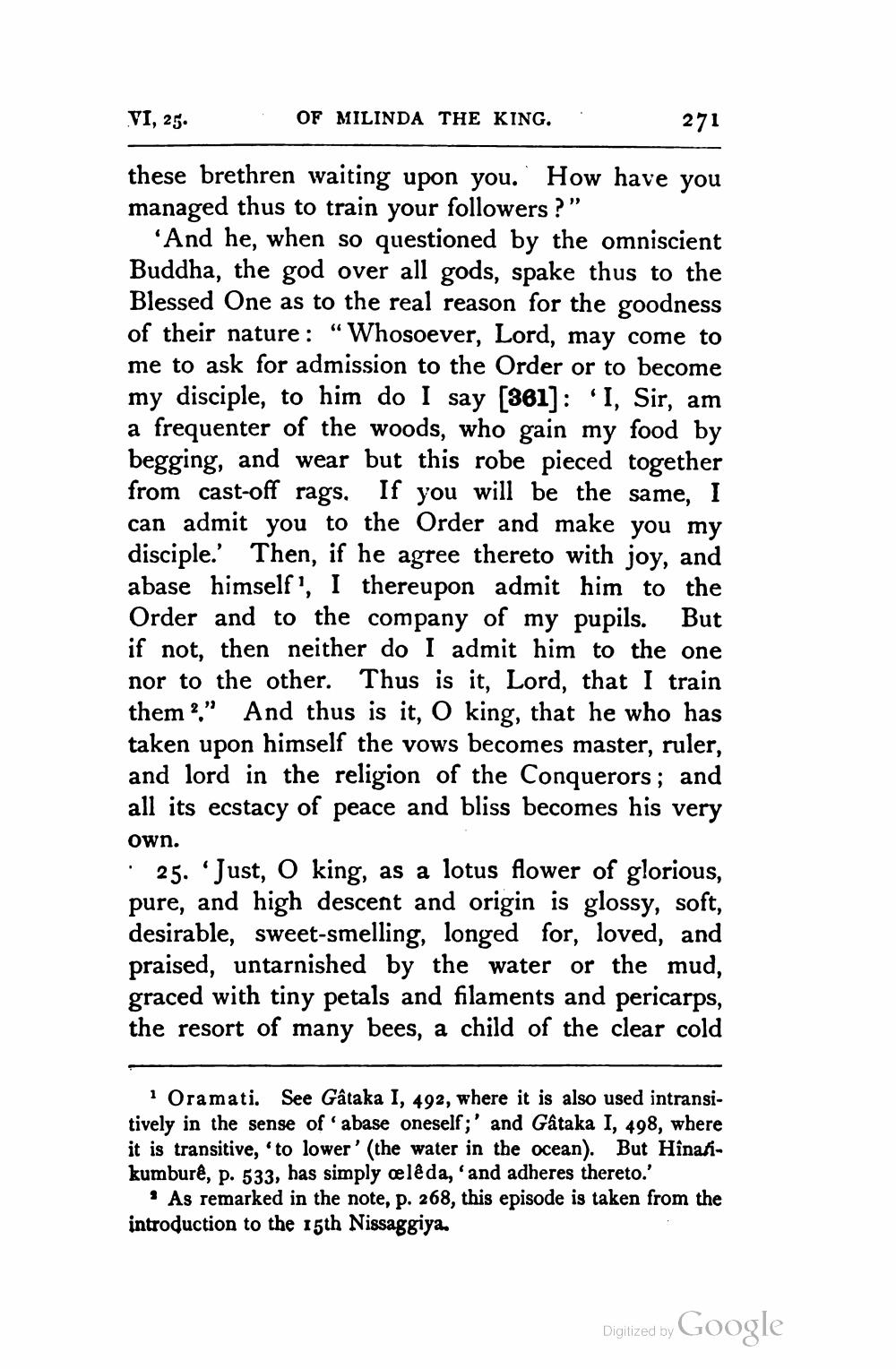________________
VI, 25.
OF MILINDA THE KING..
271
these brethren waiting upon you. How have you managed thus to train your followers ?”
And he, when so questioned by the omniscient Buddha, the god over all gods, spake thus to the Blessed One as to the real reason for the goodness of their nature: “Whosoever, Lord, may come to me to ask for admission to the Order or to become my disciple, to him do I say [361]: 'I, Sir, am a frequenter of the woods, who gain my food by begging, and wear but this robe pieced together from cast-off rags. If you will be the same, I can admit you to the Order and make you my disciple.' Then, if he agree thereto with joy, and abase himself', I thereupon admit him to the Order and to the company of my pupils. But if not, then neither do I admit him to the one nor to the other. Thus is it, Lord, that I train them ?." And thus is it, o king, that he who has taken upon himself the vows becomes master, ruler, and lord in the religion of the Conquerors; and all its ecstacy of peace and bliss becomes his very own. · 25. Just, О king, as a lotus flower of glorious, pure, and high descent and origin is glossy, soft, desirable, sweet-smelling, longed for, loved, and praised, untarnished by the water or the mud, graced with tiny petals and filaments and pericarps, the resort of many bees, a child of the clear cold
i Oramati. See Gâtaka 1, 492, where it is also used intransitively in the sense of abase oneself;' and Gataka I, 498, where it is transitive, 'to lower' (the water in the ocean). But Hînatikumburê, p. 533, has simply celêda, 'and adheres thereto.'
• As remarked in the note, p. 268, this episode is taken from the introduction to the 15th Nissaggiya.
Digitized by Google




